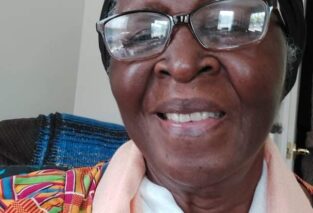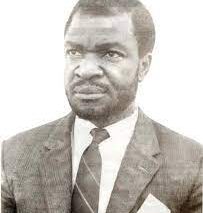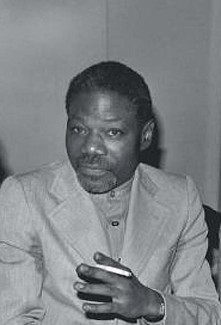(Revised and reproduced from Cameroon Tribune of Tuesday, November 18, 1986, p. 16).
Agostinho Antonio Neto, the first President of the People’s Republic of Angola, died in September of 1979 at the relatively young age of 57 (1922-1979). He was felled, not by an assassin’s bullet, but by that implacable enemy of man, blood cancer. His sudden and surprising death cruelly robbed progressive humanity of one of its most articulate spokesmen, a man of action whose tragically short life was in itself an embodiment of the struggles of his people for their freedom, first from Portuguese colonialism and, at the moment of his demise, from South African aggressors.
Neto was a man of many skills. Not only was he a bright political star rising tall and proud over the skies of Africa, he was also a medical doctor by training and, more importantly for our purpose here, a poet of international renown and one of Africa’s most committed writers. There is no anthology of Lusophone poetry in Africa today in which Neto’s presence is not predominant.
His poetry depicts the bitter struggles of the Angolan people under Portuguese colonial rule. The majority of the poems in his only collection of poems available in English, Sacred Hope (Dar-Es Salaam: Tanzania Publishing House, 1974), were written in one Portuguese prison or another during the 1950s and the 1960s.
His earliest poems, which appeared in 1945, were a stinging denunciation of the colonial practice of forced labour. “Departure for forced labour,” for example, describes the anguish of men leaving for slave labour on the island of Sao Tome and Principe, and the anxiety and helplessness of the loved ones they were leaving behind.
The dominant theme of Neto’s early poetry is long darkness that brings despair like a mist over the land. As young men are shipped away to labour and concentration camps in Sao Tome or Cape Verde islands, the poet sees only a dark future for them: “There is no light/no stars in the dark/Everything on earth is shadow”.
The unlit streets and the houses without electricity or running water in the shanty-towns outside the capital city of Luanda, which the poet calls “poor neighbourhoods/of poor people,” teem with drunken misery, fear, despair, ignorance and senseless violence.
Since darkness must inevitably yield to daylight and sunshine, his later poems hold messages of hope. In “Farewell at the hour of parting”, for example, the poet sees a brighter morning rising beautifully over the land. “Tomorrow we shall sing anthems of freedom/when we commemorate/the day of the abolition of slavery,” he chants in exuberance.
As his people’s self-consciousness grows and firms and they start to take their destiny into their hands, instead of walking about like silent ghosts, hope gradually dethrones despair as the dominant theme of his poetry. In “With equal voice,” the poet talks in joyful tones of men and women emerging from “cemeteries of ignorance” to seize control of their destiny.
To become masters of themselves and of their land, his people need international solidarity since their fate is inextricably wedded to that of suffering humanity in general. That is the conclusion of the poem “Reconquest” in which the poet tells his people they cannot go it alone. Their long road to freedom can only succeed if they join forces with progressive humanity the world over: “Let us go with all humanity/to conquer our world and our peace.”
Neto sees the ideal future as one that is devoid of cruelty in all its forms, one in which fraternity reigns supreme. In “With equal voices”, he says: “Here are our hands/open to the fraternity of the world/for the future of the world.”
One of the striking features of Neto’s poetry is its rather direct and unemotional style, devoid of flowery expressions. It is as if the urgency of his message cannot accommodate flowery language for fear it might detract from the brutally of Portuguese colonialism in Angola.
The influence of his medical profession on his work is not evident either. You search in vain for medical words or expressions in his poetry, although you are all the time aware of the poet plunging his pen, like a scalpel, into the abscess of colonialism afflicting his people. Our world has certainly been a much better place because Agostino Antonio Neto was here and left poetic traces of hope as his footprints in the legendary sands of time.


